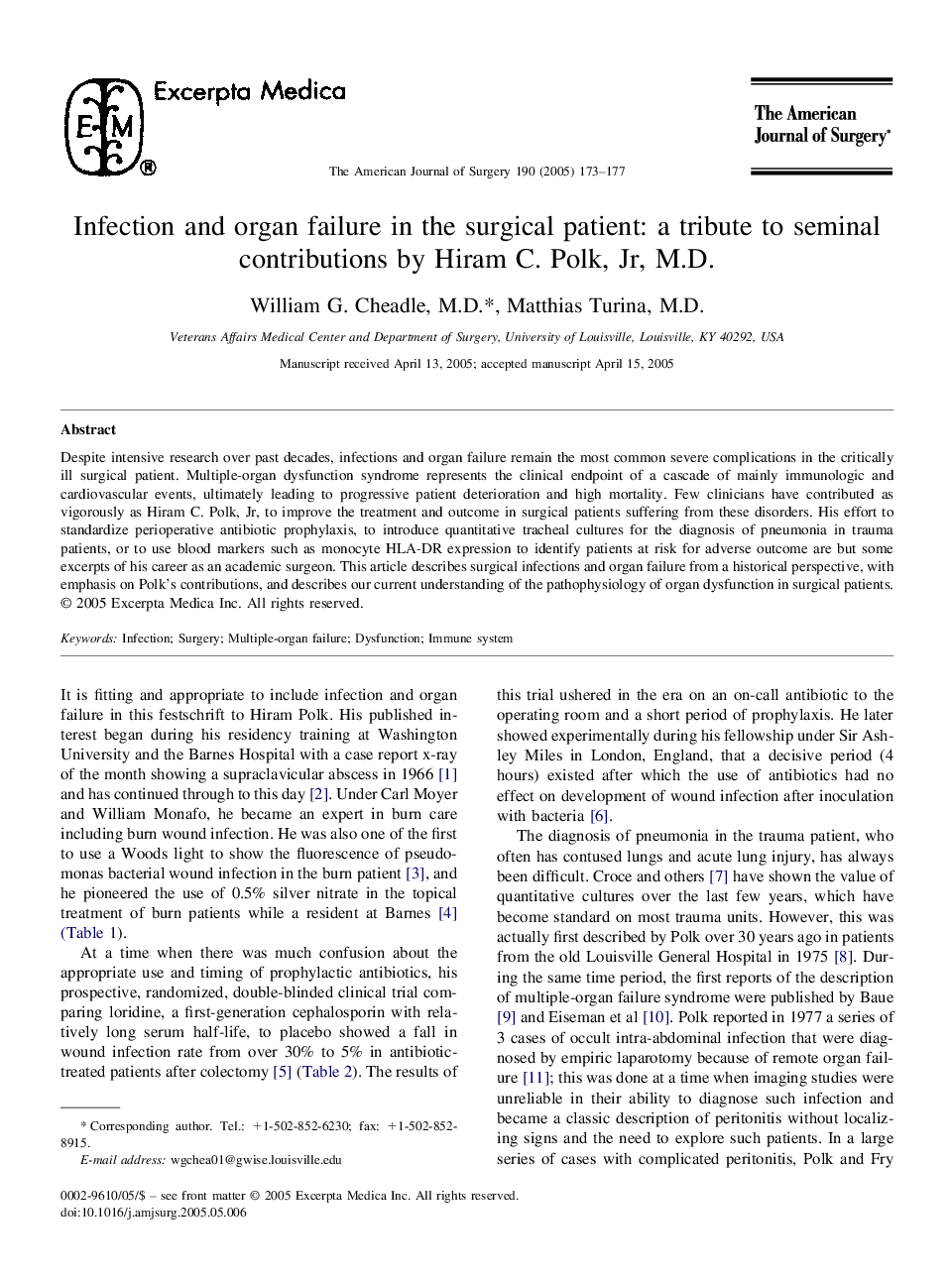| Article ID | Journal | Published Year | Pages | File Type |
|---|---|---|---|---|
| 10101235 | The American Journal of Surgery | 2005 | 5 Pages |
Abstract
Despite intensive research over past decades, infections and organ failure remain the most common severe complications in the critically ill surgical patient. Multiple-organ dysfunction syndrome represents the clinical endpoint of a cascade of mainly immunologic and cardiovascular events, ultimately leading to progressive patient deterioration and high mortality. Few clinicians have contributed as vigorously as Hiram C. Polk, Jr, to improve the treatment and outcome in surgical patients suffering from these disorders. His effort to standardize perioperative antibiotic prophylaxis, to introduce quantitative tracheal cultures for the diagnosis of pneumonia in trauma patients, or to use blood markers such as monocyte HLA-DR expression to identify patients at risk for adverse outcome are but some excerpts of his career as an academic surgeon. This article describes surgical infections and organ failure from a historical perspective, with emphasis on Polk's contributions, and describes our current understanding of the pathophysiology of organ dysfunction in surgical patients.
Related Topics
Health Sciences
Medicine and Dentistry
Surgery
Authors
William G. M.D., Matthias M.D.,
